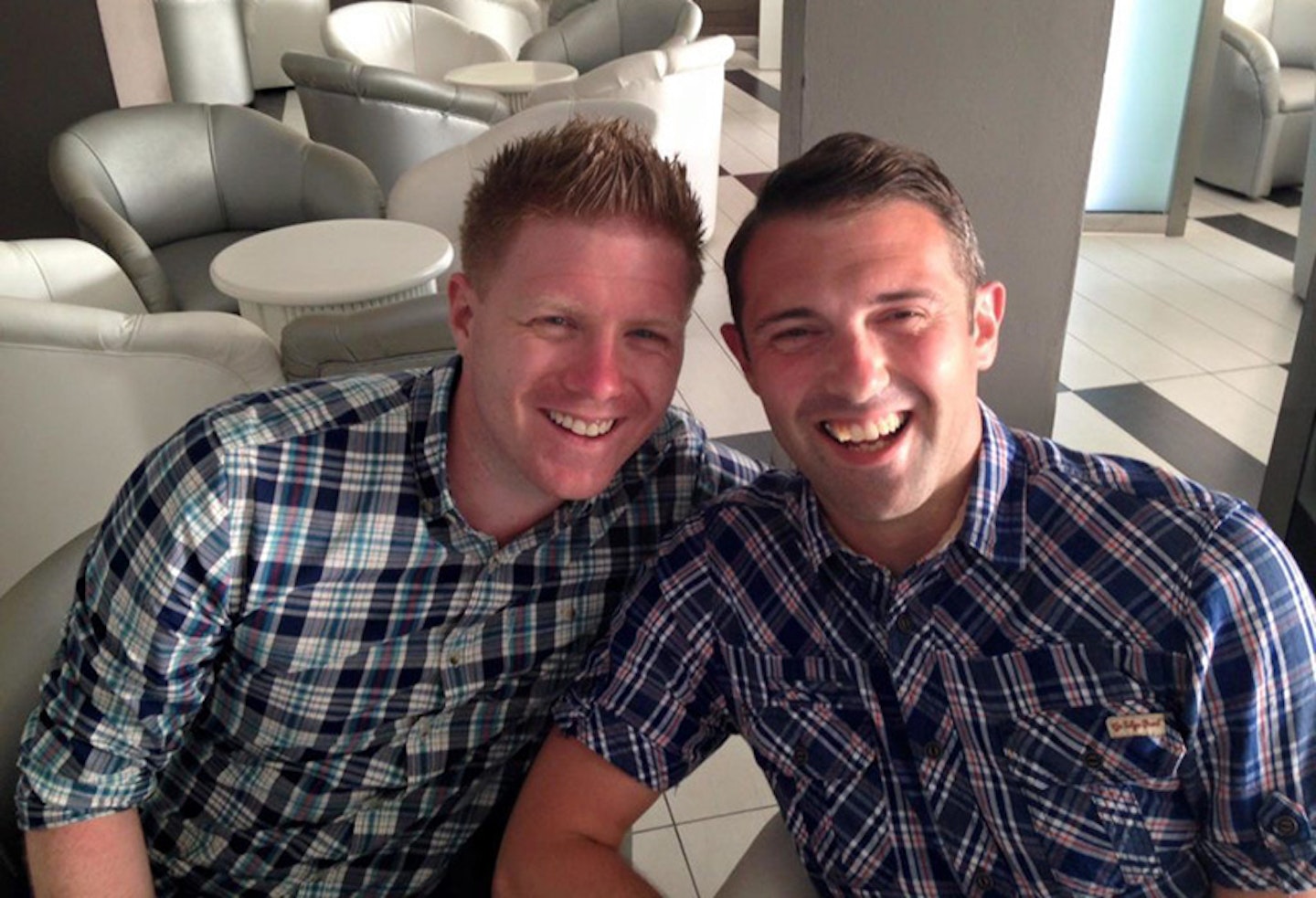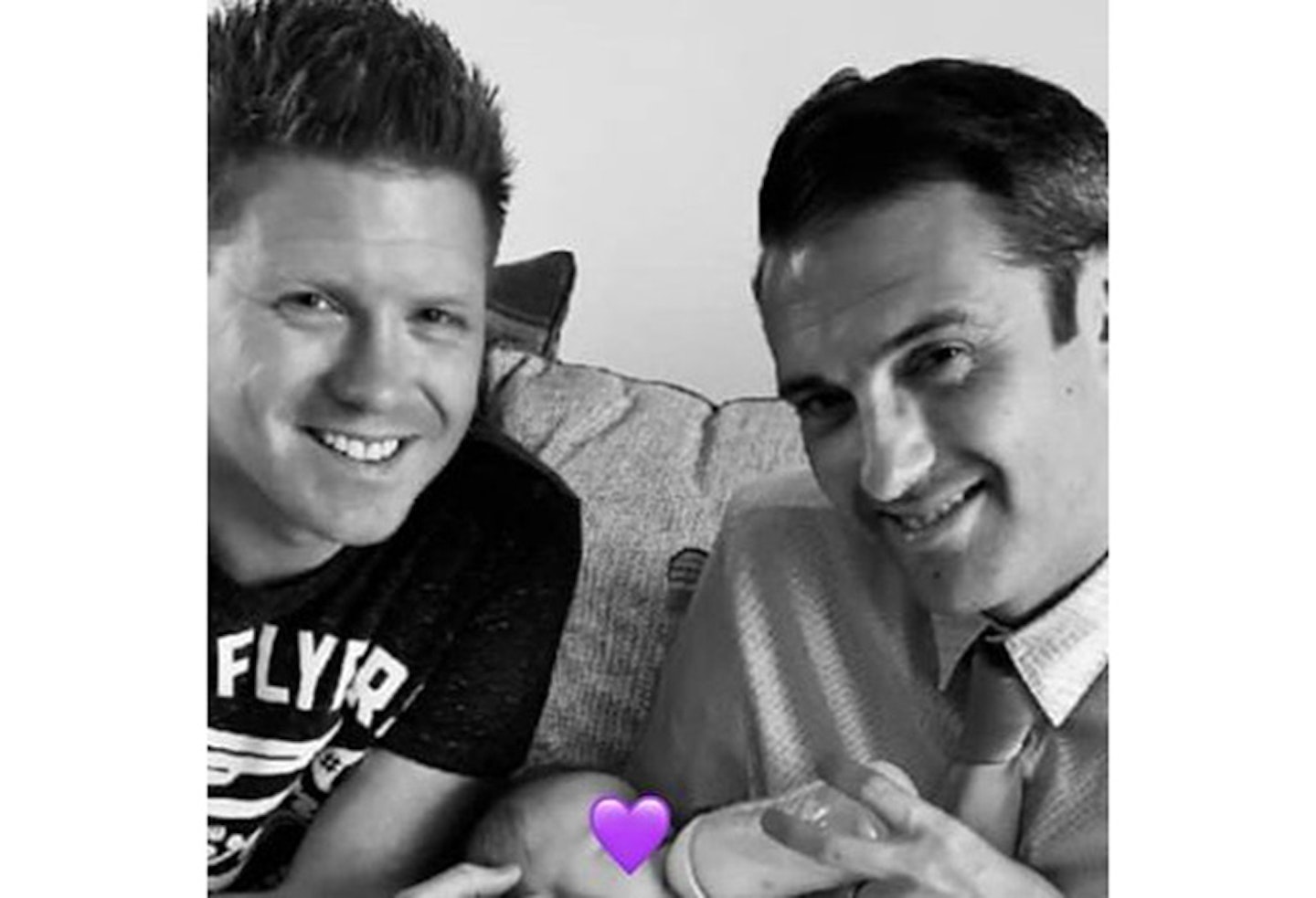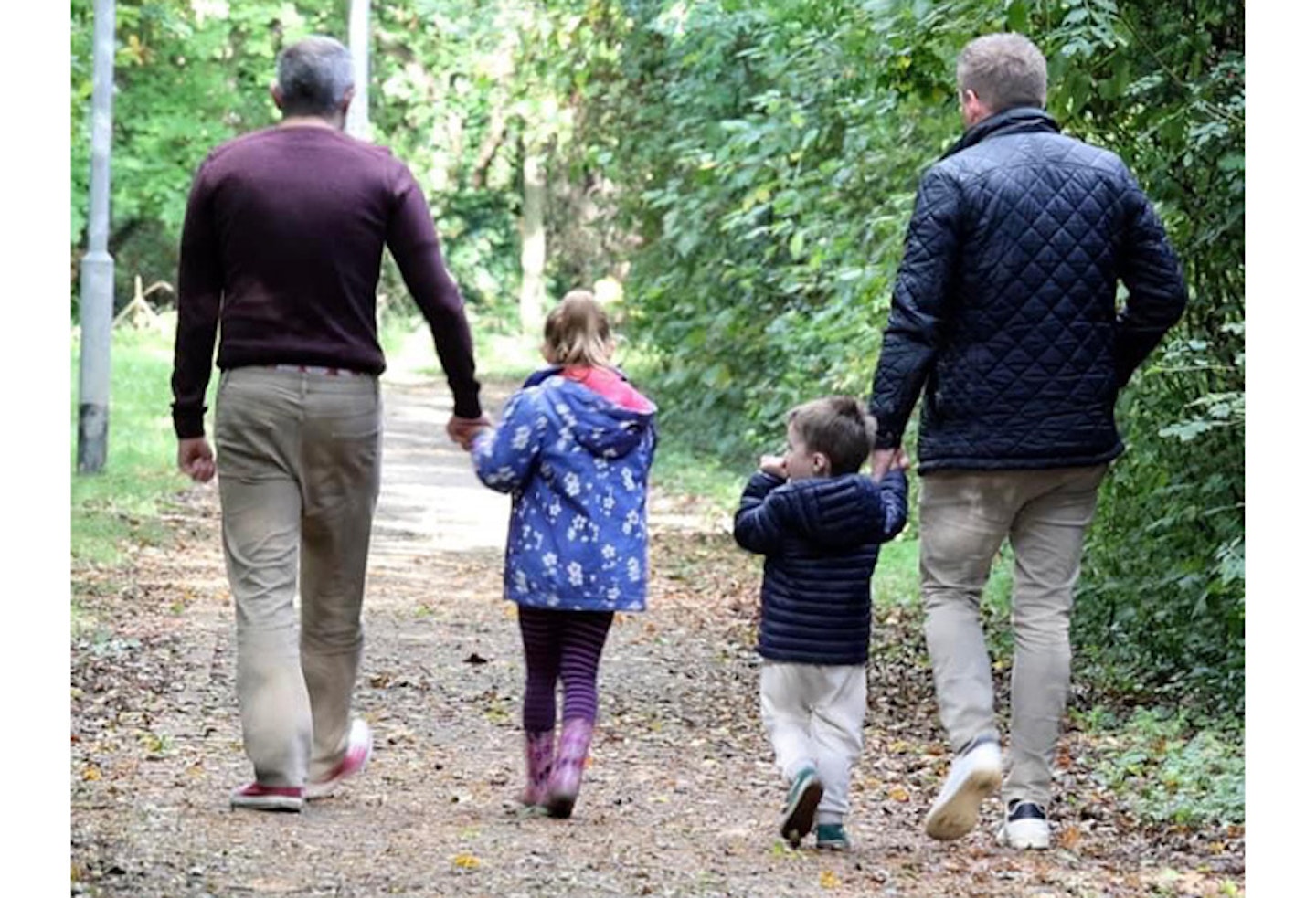My husband, Darren and I are proud adoptive fathers of two children. We have a daughter who is 6 years old and a son who is 3. I have been documenting our parenting journey since 2020 via our Instagram page Dadda & Daddy @dadda_n_daddy.
When we got married in 2014, conversations very quickly turned to the route we would pursue to become parents e.g adoption or surrogacy.
Due to our careers, (Darren is a Headteacher, and I have previously worked in Education and within the Local Authority), we felt that our professional experience of working with vulnerable children and knowledge in this arena would be best suited to adoption. We had several conversations about being aware of the number of children who were already out there looking for a loving home with nurturing parents and role models, and felt that we could do this.

Whilst we had a good understanding of the adoption process and the large quantities of paperwork it involved, we weren’t really prepared for how much of our mental space that the process would consume. I often get asked by people considering adoption 'what is the best piece of advice you can give to someone thinking about adopting' and I always say to be at a point in your life where you are able to give 100% of your time and focus to the process as it will take over your life. Whether it is meetings with social workers, training sessions or reading up on heavy topics like child neglect, domestic abuse, early childhood trauma or theories of attachment to name a few. If you have something else big going on in your life such as a new job, new house, wedding; it could become really overwhelming and could lead to you not taking in all of the information that is needed.
The adoption process
I still believe that there is a misconceived understanding by many people that the adoption process takes years. In fact, the approval process in the UK usually takes around 6 months. The part that can take the longest is the family finding and matching, but this could mainly be due to how open the prospective adopters are to the type of care needs that they are willing to take on.
We have been through the adoption process twice. The first time around, from our initial enquiry to the day our daughter moved home, it was 9 months, however we were very open to the type of needs (or potential needs) that we could take on. When we adopted our son, the family finding part took longer, as we needed to be even more certain that the match was 100% right. We already had a daughter with complex and developing needs, and wanted to ensure that we didn’t over stretch ourselves and take on too much that would be to the detriment to either child, or to us.
I remember that meetings with our approval social worker often felt like therapy as you are reliving and revisiting parts of your past. The whole process is quite cathartic. I didn't appreciate how difficult I would find the matching part of the process, particularly on their second adoption. We felt that our lives and fate was completely in the hands of someone else.
"The day Lucy came home felt like Christmas Day"
Our daughter Lucy came to us in 2018 under the Foster to Adopt route. I can only describe the day she came home as that Christmas day feeling you get as a child. We first met Lucy when she was 3 months old, whilst she was in foster care, but due to a legal delay she didn’t actually move home until she was nearly 5 months old. However, we got to spend lots of time with Lucy and the foster carers, enjoying trips out, building bonds and learning her likes/dislikes in the run up to her coming home.

"The second time we went through the adoption process was during lockdown"
Then during the pandemic, we went through the process to be approved as second time adopters. Due to covid/lockdown restrictions, the process was different in that meetings with the social worker were held virtually or at either end of their back garden. Our son came home after a short transition of 4 days and him coming home on the 5th day.
I can remember how nervous and anxious we were about the children meeting for the first time. Lucy had a disliking for loud noises, and we were wondering how she would react when the new baby cried. But our fears soon went away when she walked into his foster carers’ living room and gave him a cuddle and placed a baby toy on his lap.
"Life story work is really important"
We are very open with the children that they are not biologically related but they are very much siblings and have a wonderful bond. Often their relationship is very typical of birth siblings; falling out over a toy or what they want on the tv, but overall they have such love for one another.
We talk to the children about their birth families and show them ‘toy box books’ which is an age appropriate story written about the child and talks about their birth parents. Life story work is really important to adopted children as it can help with their sense of identity so this work continues through their childhood.

I discovered new things about myself through taking on the challenge of parenting; I think I’m far more resilient than I ever knew I was! I’ve got a real fire in my belly when it comes to making sure my kids get the adequate support that they need and deserve. I also have a real passion for ensuring that other parents of adopted and/or SEN children in particular don’t feel isolated.
"Being an adopter and SEN parent can be isolating"
Not only am I incredibly proud of my family, I am really proud of the wider community that I’ve created online.
I think it’s really important for people who have been there and had challenges to share those experiences to help people. Being an Adopter/ SEN parent can be quite isolating as they bring up unique circumstances, so it’s really good for people to be able to resonate with what they see on social media.
When I gave up my desk job in 2020 to become a full time parent and carer, I knew I would want something else to keep my mind ticking.
Our Instagram page has really grown and developed. It has also given us the opportunities including; contributing to a cross parliamentary policy on Early Years Development, working with the Modern Family Show in London (the largest LGBTQ+ family building event) and working as a content creator for many organisations and charities. We are also regulars on the BBC Tiny Happy People Channel which is great fun.
Something that is really special is a podcast which I co-host with a couple I supported through their adoption process and have become good friends with. This is called ‘My Two Dads and Me, the Adoption podcast’. We say it’s the Adoption version of Loose Women! I also support two SEN charities, Anna Kennedy OBE Online and the Autism Allotments Project.
Andi Ellis Smith is a dad of two, heavily involved in advocating for LGBTQ+ Adoption and SEN. He provides peer support for LGBTQ+ and SEN parents and families through the Instagram page @Dadda_n_Daddy and is passionate about offering support to others going through the adoption process.
